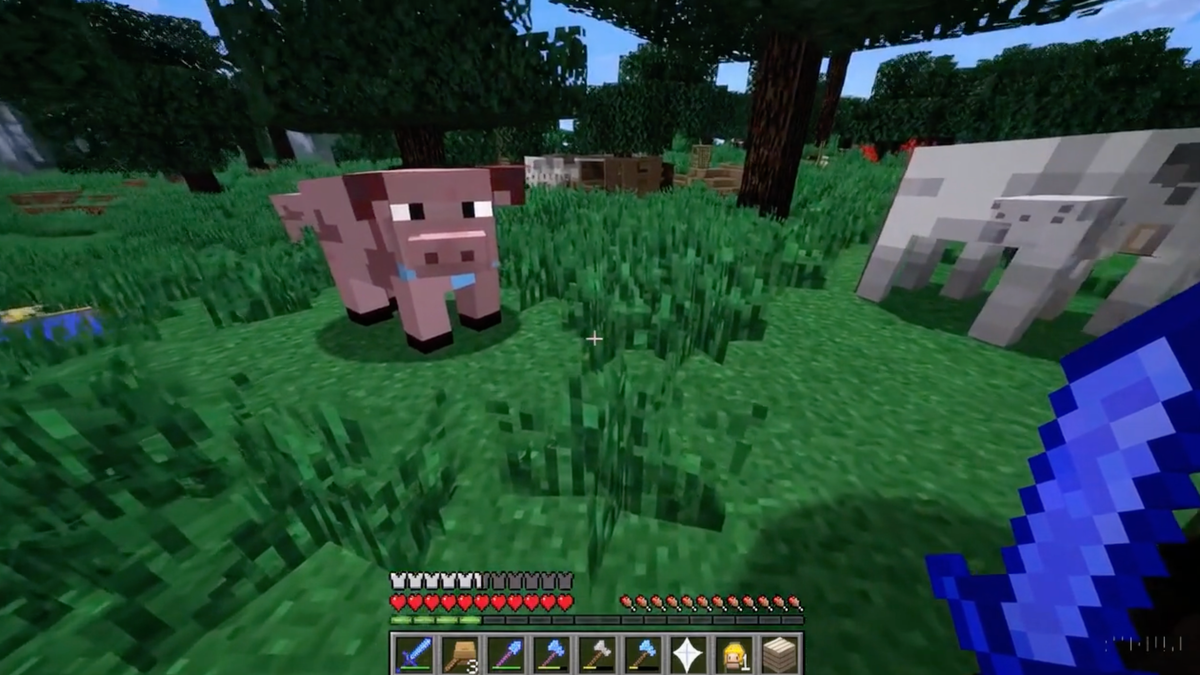OpenAI's Sora: Revolutionizing Video Game Creation
Core Concepts
OpenAI's Sora is a groundbreaking AI model that revolutionizes video game creation by simulating digital worlds with unprecedented accuracy and efficiency.
Abstract
OpenAI's Sora, an advanced AI model, showcases remarkable capabilities in recreating Minecraft and generating video game worlds. Unlike traditional image generators, Sora operates as a data-driven physics engine, predicting object interactions to create immersive virtual environments. Despite some limitations in accurately modeling physics, Sora's innovative features like object permanence and dynamic camera motion set it apart from other video generators. Speculations suggest that Sora might have been trained on Unreal Engine 5 (UE5), although OpenAI has not confirmed this. The potential impact of Sora on the gaming industry raises questions about proper attribution and its implications for game developers.
OpenAI’s Sora Is Coming for Your Video Games
Stats
"Sora can simultaneously control the player in Minecraft with a basic policy while also rendering the world and its dynamics in high fidelity."
"Sora performs thousands of calculations to predict how an object interacts with its environment."
"Sora has shown successful 'object permanence,' meaning an object can leave the frame and come back in the same place."
Quotes
"Sora is more like a 'data-driven physics engine' than an image generator." - Nvidia Senior Researcher Dr. Jim Fan
Key Insights Distilled From
by at gizmodo.com 02-16-2024
https://gizmodo.com/openai-sora-is-coming-for-your-video-games-1851264042
Deeper Inquiries
What ethical considerations should be taken into account when developing AI models like Sora?
When developing AI models like Sora, several ethical considerations must be carefully addressed. Firstly, issues surrounding data privacy and consent are crucial. Ensuring that the data used to train these models is obtained ethically and with proper permissions from individuals or organizations is essential to prevent privacy violations. Additionally, transparency in how the AI model operates and making sure it does not perpetuate biases or discrimination is vital. Developers need to actively mitigate any potential harm caused by the deployment of such advanced AI systems.
How might the disruptive nature of AI video generators impact various industries beyond gaming?
The disruptive nature of AI video generators like Sora can have far-reaching impacts across various industries beyond gaming. In fields such as entertainment and media, these technologies could revolutionize content creation processes by automating tasks traditionally done by humans. This could lead to job displacement but also create new opportunities for creativity and innovation in storytelling. Moreover, sectors like advertising and marketing may see a shift towards more personalized and engaging content generated by AI systems, changing how brands interact with consumers.
How can advancements in AI technology, such as Sora, influence future innovations in virtual environments?
Advancements in AI technology like Sora have the potential to significantly influence future innovations in virtual environments. By leveraging sophisticated algorithms that simulate realistic worlds and interactions, developers can create immersive experiences that blur the lines between reality and digital spaces. Virtual reality (VR) applications stand to benefit greatly from these advancements as they strive for greater realism and interactivity. Furthermore, collaborative efforts between AI researchers and game developers could lead to groundbreaking developments in procedural generation techniques that enhance gameplay experiences through dynamic world-building capabilities powered by intelligent algorithms.
0
